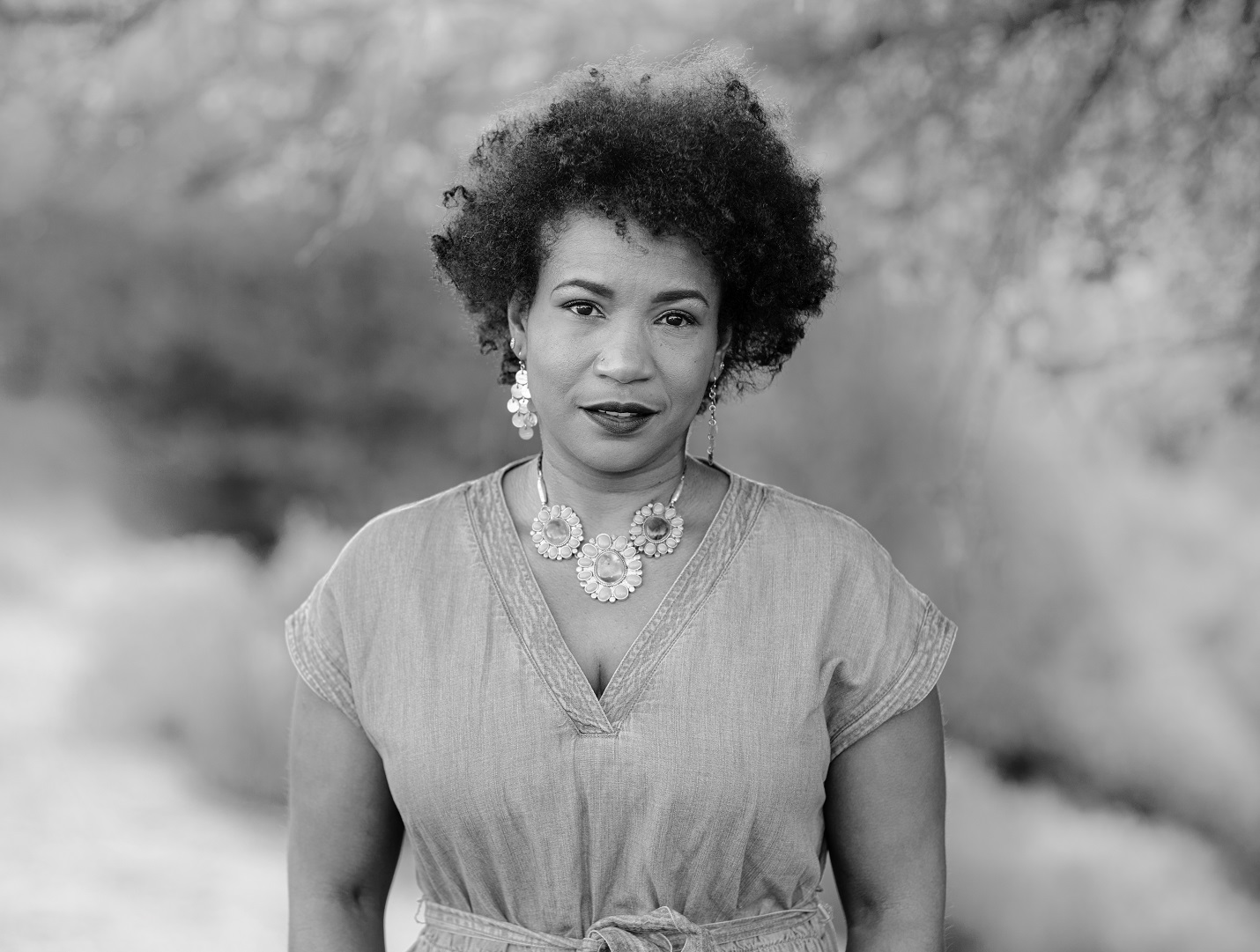Activism
Miko Marks: Oakland’s Country Music Star
Her first country music memory growing up was of Loretta Lynn’s “Coal Miner’s Daughter”. She adds that Johnny Paycheck’s “Take This Job and Shove It” was her mother’s anthem.

Miko Marks, 48, released her third album, “Our Country” in March.
The virtual release party was free, and donations were encouraged to benefit The Center for Hope in Flint, Michigan where Marks grew up.
Marks told ABC 7 News that “Our Country” was about “ . . . healing, social justice, prayer, system racism, marginalization, and it’s about hope to change.”
It has been 14 years since her last album release. Her previous albums were “Freeway Bound” in 2005 and “It Feels Good” in 2007.
Marks co-wrote six of the eight songs on “Our Country”.
Her first country music memory growing up was of Loretta Lynn’s “Coal Miner’s Daughter”. She adds that Johnny Paycheck’s “Take This Job and Shove It” was her mother’s anthem.
According to SongData, “ . . . between 2002-2020, there were 11,484 unique songs played on country radio. In those 19 years, there were only 13 Black artists among those songs, and only three Black women. In total, songs by Black women received 0.03% of radio airplay.”
The Pointer Sisters in 1974 with “Fairytale,” also Oakland based, and Mickey Guyton in 2021 with “Black Like Me’ are the only Black women to be nominated in a country category in the Grammy awards.
Marks spent time in Nashville where she heard “you won’t sell” without explanation, and she understood that was code for Blacks don’t sell in Country music. She moved to Oakland and was excited to collaborate with Redtone Records in Palo Alto to record.
Marks notes that country music has its roots in Black music and the banjo is from the African continent.
Marks gives shout outs to the other Black women in country music: Linda Martell, Jo Anna Neel, Ruby Falls, and Rissa Palmer. Palmer, Reyna Roberts, Brittney Spencer, and Mickey Guyton joined Marks in a round-table discussion of Black women in country music published in the New York Times during Women’s History Month this year.
“Oakland has been a refuge of community for me. The people, the arts and the culture helped shape me as an artist. It has allowed me to weave to into the fabric of country music my influences that extend outside the genre.
“The Oakland Post has been a foundation for the community and highlighting the arts.” Marks told The Oakland Post,
For more information go to MikoMarks.com
Wikipedia, The Wall Street Journal, The San Francisco Chronicle, and The New York Times were sources for this story.
Activism
Oakland Post: Week of April 24 – 30, 2024
The printed Weekly Edition of the Oakland Post: Week of April 24 – 30, 2024

To enlarge your view of this issue, use the slider, magnifying glass icon or full page icon in the lower right corner of the browser window. ![]()
Activism
Oakland Post: Week of April 17 – 23, 2024
The printed Weekly Edition of the Oakland Post: Week of April 17 – 23, 2024

To enlarge your view of this issue, use the slider, magnifying glass icon or full page icon in the lower right corner of the browser window. ![]()
Activism
Oakland Schools Honor Fred Korematsu Day of Civil Liberties
Every Jan. 30, OUSD commemorates the legacy of Fred Korematsu, an Oakland native, a Castlemont High School graduate, and a national symbol of resistance, resilience, and justice. His defiant stand against racial injustice and his unwavering commitment to civil rights continue to inspire the local community and the nation. Tuesday was “Fred Korematsu Day of Civil Liberties and the Constitution” in the state of California and a growing number of states across the country.

By Post Staff
Every Jan. 30, OUSD commemorates the legacy of Fred Korematsu, an Oakland native, a Castlemont High School graduate, and a national symbol of resistance, resilience, and justice.
His defiant stand against racial injustice and his unwavering commitment to civil rights continue to inspire the local community and the nation. Tuesday was “Fred Korematsu Day of Civil Liberties and the Constitution” in the state of California and a growing number of states across the country.
One OUSD school is named in his honor: Fred T. Korematsu Discovery Academy (KDA) elementary in East Oakland.
Several years ago, founding KDA Principal Charles Wilson, in a video interview with anti-hate organization “Not In Our Town,” said, “We chose the name Fred Korematsu because we really felt like the attributes that he showed in his work are things that the children need to learn … that common people can stand up and make differences in a large number of people’s lives.”
Fred Korematsu was born in Oakland on Jan. 30, 1919. His parents ran a floral nursery business, and his upbringing in Oakland shaped his worldview. His belief in the importance of standing up for your rights and the rights of others, regardless of race or background, was the foundation for his activism against racial prejudice and for the rights of Japanese Americans during World War II.
At the start of the war, Korematsu was turned away from enlisting in the National Guard and the Coast Guard because of his race. He trained as a welder, working at the docks in Oakland, but was fired after the bombing of Pearl Harbor in 1941. Fear and prejudice led to federal Executive Order 9066, which forced more than 120,000 Japanese Americans out of their homes and neighborhoods and into remote internment camps.
The 23-year-old Korematsu resisted the order. He underwent cosmetic surgery and assumed a false identity, choosing freedom over unjust imprisonment. His later arrest and conviction sparked a legal battle that would challenge the foundation of civil liberties in America.
Korematsu’s fight culminated in the Supreme Court’s initial ruling against him in 1944. He spent years in a Utah internment camp with his family, followed by time living in Salt Lake City where he was dogged by racism.
In 1976, President Gerald Ford overturned Executive Order 9066. Seven years later, the 9th Circuit Court of Appeals in San Francisco vacated Korematsu’s conviction. He said in court, “I would like to see the government admit that they were wrong and do something about it so this will never happen again to any American citizen of any race, creed, or color.”
Korematsu’s dedication and determination established him as a national icon of civil rights and social justice. He advocated for justice with Rosa Parks. In 1998, President Bill Clinton gave him the Presidential Medal of Freedom saying, “In the long history of our country’s constant search for justice, some names of ordinary citizens stand for millions of souls … To that distinguished list, today we add the name of Fred Korematsu.”
After Sept. 11, 2001, Korematsu spoke out against hatred and discrimination, saying what happened to Japanese Americans should not happen to people of Middle Eastern descent.
Korematsu’s roots in Oakland and his education in OUSD are a source of great pride for the city, according to the school district. His most famous quote, which is on the Korematsu elementary school mural, is as relevant now as ever, “If you have the feeling that something is wrong, don’t be afraid to speak up.”
-

 Activism4 weeks ago
Activism4 weeks agoOakland Post: Week of March 27 – April 2, 2024
-

 #NNPA BlackPress4 weeks ago
#NNPA BlackPress4 weeks agoBeloved Actor and Activist Louis Cameron Gossett Jr. Dies at 87
-

 Community1 week ago
Community1 week agoFinancial Assistance Bill for Descendants of Enslaved Persons to Help Them Purchase, Own, or Maintain a Home
-

 Activism3 weeks ago
Activism3 weeks agoOakland Post: Week of April 3 – 6, 2024
-

 Business2 weeks ago
Business2 weeks agoV.P. Kamala Harris: Americans With Criminal Records Will Soon Be Eligible for SBA Loans
-

 Activism2 weeks ago
Activism2 weeks agoOakland Post: Week of April 10 – 16, 2024
-

 Community2 weeks ago
Community2 weeks agoAG Bonta Says Oakland School Leaders Should Comply with State Laws to Avoid ‘Disparate Harm’ When Closing or Merging Schools
-

 Community1 week ago
Community1 week agoOakland WNBA Player to be Inducted Into Hall of Fame

























































